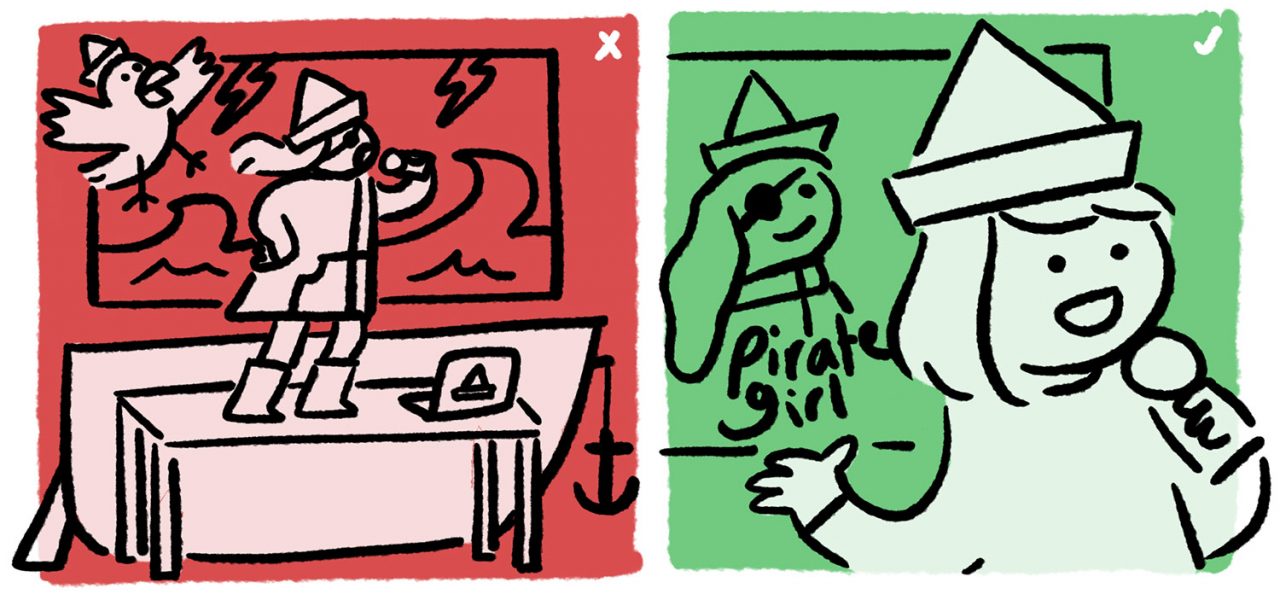
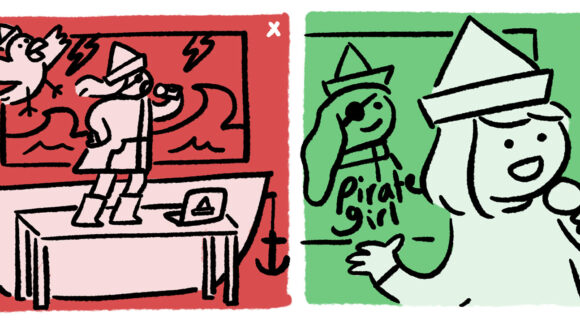
How To Pitch And Sell An Animated Series (Earning Bonus Points): Part 4
Our series of how to pitch and sell an animated show concludes today with this list of additional tips that will give an extra ‘oomph’ to your pitches.
In part one of this series, we explored some of the fundamentals of setting up a pitch presentation; in part two, we explored best practices for communicating ideas clearly; and in part three, we looked at techniques for building trust with the audience to whom you’ll be pitching your ideas.
As noted in the other sections, it’s important to remember that pitching practices vary all over the world, so not every pitch tip will apply to every pitching situation. For example, in the United States, most animated series are not pitched at production forums in the presence of distributors and broadcasters. It’s vital to do your research beforehand and understand to whom you’ll be pitching your project and in what format. Although these tips are based on experiences at European markets specifically, you will find that most of the tips will be applicable to other pitching environments as well.
If you’ve followed the series, we hope it’s been helpful to you. Best of luck to everyone who’s pitching all their amazing ideas – let us know how it goes.
PART 4: EARNING BONUS POINTS
Give a taste of your project
The absolute best thing is for your audience to feel like they’re watching an episode or scene for a while. There are endless opportunities to achieve this feeling.

Test with your target audience
Do a test screening with your target audience, and share the reactions with your pitch audience. A quote from your niece is already a good start, but of course the bigger the test audience, the more convincing you’ll sound.
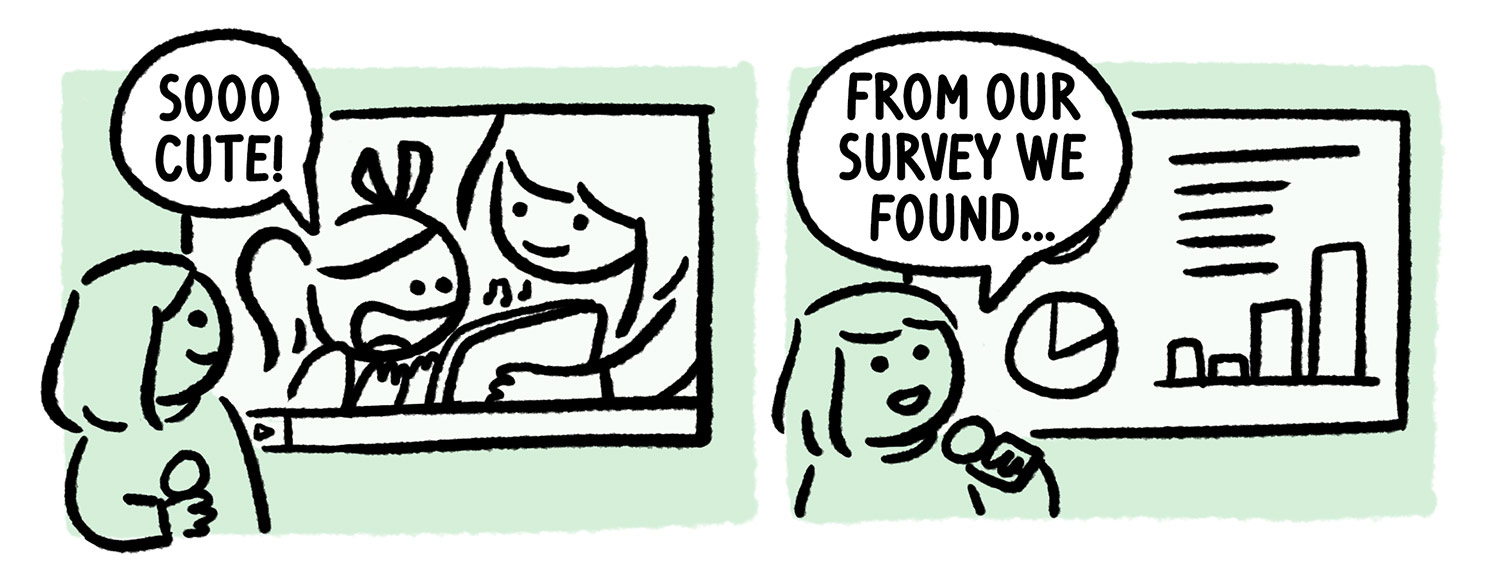
Mention cross-media potential
Cross-media opportunities are becoming increasingly important in the market. If your project has those opportunities, be sure to mention them. If you can’t name anything specific though, it’s better to not mention it at all.
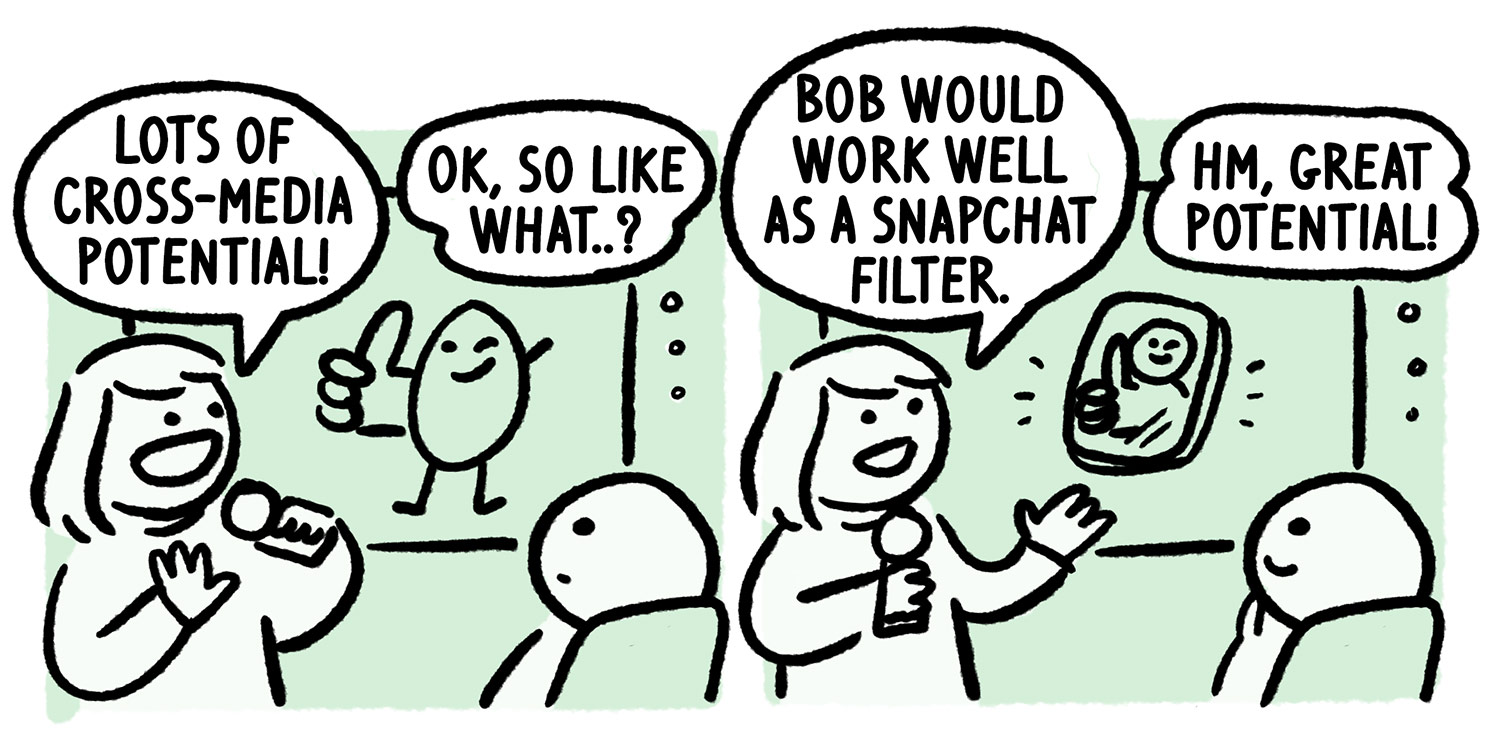
Be remembered through a prop
Sporting a funny prop makes you easy to recognize. Don’t be afraid to get creative – just don’t overdo it to the point where they start confusing you for Carrot Top…
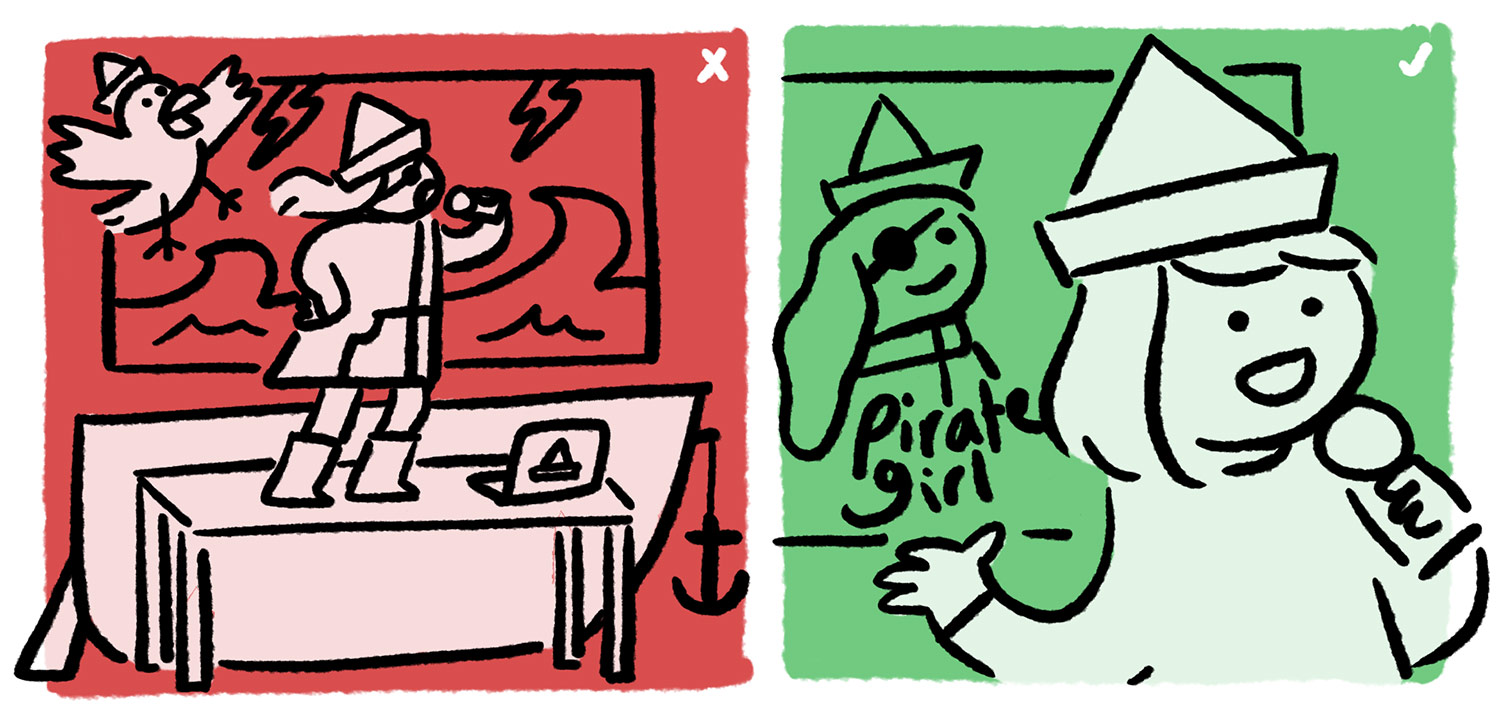
If you’re unconvinced of the prop technique, listen below to former Nickelodeon executive Eric Coleman talk about what he remembers about Stephen Hillenburg’s pitch for Spongebob Squarepants. Starting at the 6-minute mark, Coleman describes how Hillenburg came into the pitch with an underwater terrarium with models of his characters in it.
